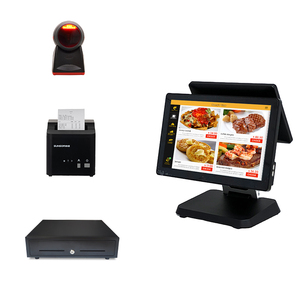
All categories
Featured selections
Trade Assurance
Buyer Central
Help Center
Get the app
Become a supplier

(586 products available)
















































The various types of MEI cash acceptors are as follows:
Bill acceptors
Bill acceptors are devices used to accept paper currency in exchange for goods or services. These bill acceptors are made to identify, validate, and store the bills. They are also built to reject any fake or soiled bills. Once a bill is accepted, the bill acceptor rolls it into a secure compartment. Most vending machines and ATMs use bill acceptors. MEI bill acceptors are efficient, reliable, and fast.
Coin acceptors
Coin acceptors are devices that accept coins as a means of payment for goods or services. These devices can identify, validate, and store accepted coins. Also, they can reject foreign, counterfeit, or defective coins. Generally, coin acceptors are used in vending machines, arcade games, and other self-service devices. MEI coin acceptors are designed to minimize jams and maximize the efficiency of the coin validation process.
Combined acceptors
Combined acceptors can accept both coins and bills. These devices provide users with more payment options. This feature can increase sales. Combined acceptors are used in various applications, including vending machines, laundromat machines, and other self-service devices.
Smart acceptors
Smart acceptors are advanced payment devices that can accept bills, coins, and even tokens. They have intelligent technology that enables them to connect to the internet. This feature allows for remote management, data collection, and payment tracking. Smart acceptors are used in applications where advanced payment solutions are needed.
Payment modules
Payment modules are components integrated into machines to enable them to accept payments. These modules can be tailored to meet specific needs. For example, some modules are made to accept only coins, bills, or both. Payment modules are used in various machines, including ATMs, vending machines, and arcade games.
MEI cash acceptors are used in different industries and applications where cash transactions are necessary. Here are some common usage scenarios:
ATMs (Automated Teller Machines)
MEI cash acceptors are used in ATMs to enable users to withdraw and deposit cash. The acceptors reliably validate and store cash, providing a vital function in ATM operations.
Kiosks
Self-service kiosks in locations such as shopping centers, transportation hubs, and amusement parks use MEI cash acceptors to accept payments for tickets, vouchers, and other services.
Gaming Machines
Cash acceptors are widely used in vending machines, arcade games, and casino gaming machines to accept player funds. They are designed to handle high-volume cash transactions and reject counterfeit bills.
Parking Payment Systems
MEI cash acceptors can be used in parking meters and parking pay stations to accept cash payments. They provide a reliable payment option for drivers who prefer to pay with cash.
Public Transportation
Some public transportation systems use MEI cash acceptors in ticket vending machines to accept cash payments from passengers. This is especially common in areas where a significant portion of the population does not use credit or debit cards.
Retail and Merchandise Dispensation
MEI cash acceptors are used in various retail applications, such as candy and snack vending machines, to accept cash payments. They provide a convenient payment option for customers purchasing goods from automated dispensers.
Automated Retail
In automated retail environments, MEI cash acceptors are used to accept cash payments for products sold through vending machines and other automated vending machines.
Bill Payment Kiosks
MEI cash acceptors are used in bill payment kiosks where customers can pay utility bills, taxes, and other fees in cash. These kiosks are often located in convenience stores, libraries, and other public places to provide easy access to cash payment options.
When buying an MEI cash acceptor for resale, it is necessary to consider various factors that can help determine the performance of the device. Here are some of them:
Knowing the functions, features and design of the MEI cash acceptor can help buyers make informed decisions about their purchase. Below are the functions, features and design of the cash acceptor:
Q1: What is a MEI cash acceptor?
A1: A MEI cash acceptor is a device that is used to accept cash payments. It is often used in vending machines, arcade games, and other automated payment systems. The cash acceptor is responsible for validating and storing the cash that is inserted by the user.
Q2: How does a MEI cash acceptor work?
A2: A MEI cash acceptor works by using sensors to detect the presence of cash. Once the cash is inserted, the acceptor will validate and store the cash. It will also provide feedback to the user if there are any issues with the payment.
Q3: What are the benefits of using a MEI cash acceptor?
A3: There are many benefits of using a MEI cash acceptor. It includes: improving cash management, reducing the risk of fraud, providing a convenient payment option for users, and more.
Q4: Where is MEI cash acceptor used?
A4: A MEI cash acceptor is used in various applications such as vending machines, amusement games, transportation ticketing systems, and other self-service kiosks.
Q5: What should be done when the MEI cash acceptor jams?
A5: If the MEI cash acceptor jams, it is important to power off the machine and carefully remove the jammed bills. Avoid using force as it may damage the sensors or mechanism. Once cleared, restart the machine and check for any issues.